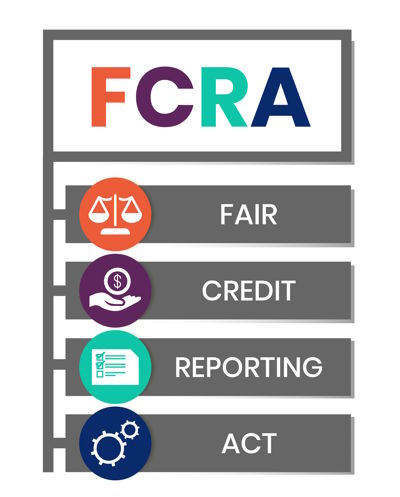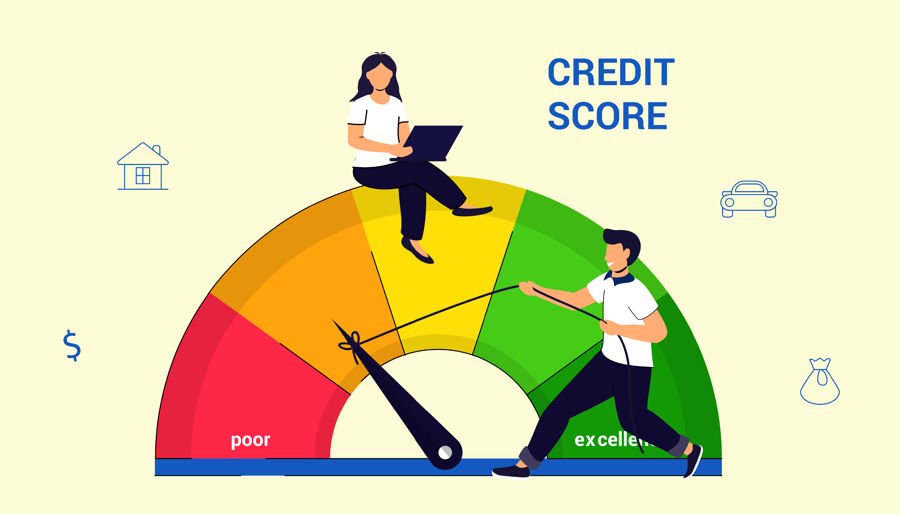If you’re thinking about filing for bankruptcy, you’re probably wondering, “How long does a bankruptcy stay on your credit record?” It’s a great question, as bankruptcy can affect your ability to get loans, credit cards, or even a new apartment. At Monohan & Monohan, we’ve guided countless Kentucky & Ohio residence through bankruptcy and credit recovery, and we’re here to give you the straight scoop in plain English. Let’s break down how long bankruptcy sticks around, what it means for your credit, and how to bounce back!
Bankruptcy’s Mark on Your Credit: The Basics
Filing for bankruptcy is a legal way to tackle overwhelming debt, but it does leave a mark on your credit report.
The two most common types—Chapter 7 (liquidation) and Chapter 13 (repayment plan)—have different timelines for how long they stay on your credit record. These timelines are set by the Fair Credit Reporting Act (FCRA), which governs how long negative information can linger with credit bureaus like Equifax, Experian, and TransUnion.
The good news? Bankruptcy doesn’t haunt your credit forever, and you can start rebuilding your credit sooner than you might think.

How Long Does Each Type of Bankruptcy Stay on Your Credit?
Here’s the rundown on how long bankruptcy stays on your credit report, based on the chapter you file:
Quick Note: The bankruptcy itself is listed as a public record on your credit report, but individual debts discharged in bankruptcy (e.g., a credit card balance) may drop off after 7 years if they were reported separately.
How Does Bankruptcy Affect Your Credit Score?
Bankruptcy can lower your credit score significantly—often by 100-200 points or more, depending on your starting score. A Chapter 7 filing tends to have a bigger initial impact than Chapter 13 because it discharges debts outright. However, the effect fades over time as the bankruptcy ages on your report.

- Immediate Impact: Your score drops sharply after filing, making it harder to get new credit, loans, or favorable interest rates.
- Long-Term Impact: The bankruptcy’s influence lessens each year, especially if you take steps to rebuild your credit (more on that below).
- Other Factors: Your credit score also depends on your payment history, debt levels, and credit mix, so bankruptcy isn’t the only factor at play.
Worried about your credit? A bankruptcy attorney can explain how filing might affect your specific situation and help you plan for recovery.
Why the Difference in Timing?
The 10-year and 7-year timelines for Chapter 7 and Chapter 13 come from the FCRA, which balances giving consumers a fresh start with providing creditors with accurate information. The shorter timeline for Chapter 13 rewards the effort of repaying debts through a court-approved plan. Once the bankruptcy drops off your credit report, it no longer directly affects your score, though creditors may still ask about past bankruptcies on loan applications.
Tips to Rebuild Your Credit After Bankruptcy
Bankruptcy remains on your credit report for years, but you don’t have to wait 7 or 10 years to improve your credit. Here are practical steps to get back on track:
Pay Bills on Time: Timely payments on utilities, rent, or post-bankruptcy loans boost your payment history, the biggest factor in your credit score.
Get a Secured Credit Card: These cards require a deposit but report to credit bureaus, helping you rebuild responsibly. Use it sparingly and pay it off monthly.
Monitor Your Credit Report: Check your report for errors (e.g., discharged debts still listed as active) using free services like AnnualCreditReport.com. Dispute inaccuracies promptly.
Keep Debt Low: Avoid racking up new debt. Aim to use less than 30% of your available credit to improve your credit utilization ratio.
Work with a Financial Counselor: The mandatory credit counseling courses in bankruptcy can connect you with resources to create a sustainable budget.
At Monohan & Monohan, we don’t just help you file bankruptcy, we guide you toward a stronger financial future with personalized advice.
Can You Get Bankruptcy Removed Early?
In most cases, you can’t remove bankruptcy from your credit report before the 7- or 10-year period expires. However, if the bankruptcy was reported in error (e.g., wrong person, incorrect filing date), you can dispute it with the credit bureaus. Provide documentation (like court records) to support your claim, and the bureau must investigate within 30 days under the FCRA.
If you’re unsure about your credit report, a bankruptcy attorney can help you review it and address inaccuracies.
Is Bankruptcy Worth It?
While bankruptcy does stay on your credit record for years, it can be a lifeline if you’re buried in debt. By discharging or reorganizing debts, Chapter 7 or Chapter 13 frees up money to rebuild your credit and cover essentials. The long-term benefits of financial relief often outweigh the temporary credit hit, especially with a solid recovery plan.

Not sure if bankruptcy is right for you? Our team at Monohan & Monohan specializes in helping Kentuckians & Ohioans make informed decisions. We’ll review your debts, credit, and goals to find the best path forward.
Take Control of Your Financial Future with Monohan & Monohan
Bankruptcy may stay on your credit record for 7 to 10 years, but it’s not the end of your financial story. With the right steps, you can rebuild your credit and regain stability faster than you think. At Monohan & Monohan our experienced Ohio & Kentucky bankruptcy attorneys are here to guide you through filing and recovery with compassion and expertise.
Ready to explore your options? Contact us today for a free consultation. Let’s clear the debt and start building a brighter future together!

